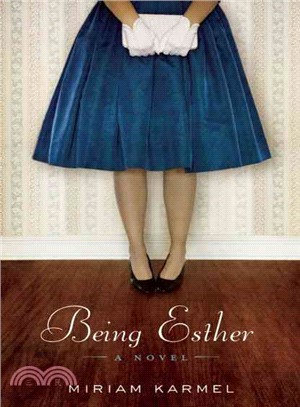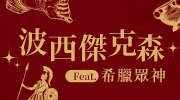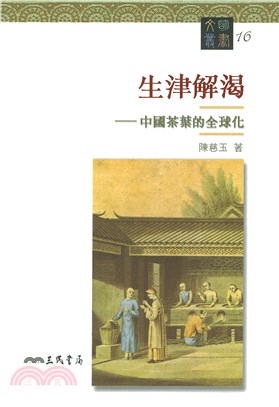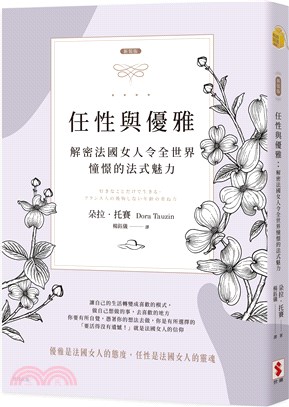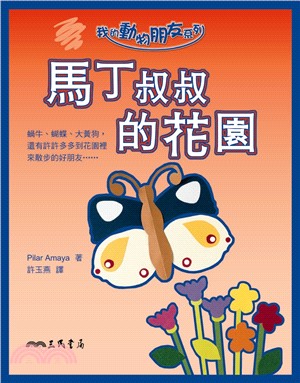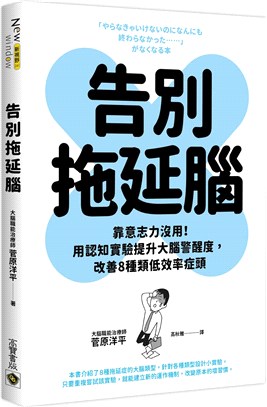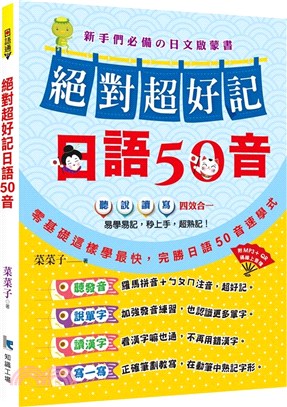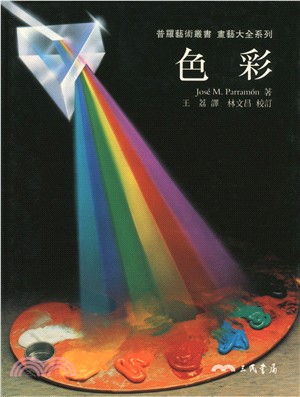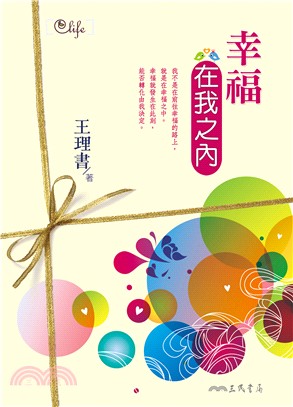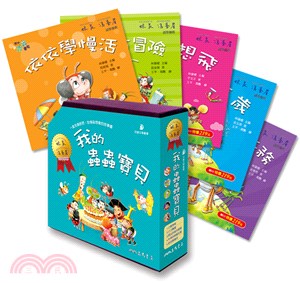Being Esther
商品資訊
ISBN13:9781571310965
出版社:Pgw
作者:Miriam Karmel
出版日:2013/03/19
裝訂/頁數:精裝/208頁
規格:12.7cm*19.1cm*1.9cm (高/寬/厚)
定價
:NT$ 836 元無庫存,下單後進貨(到貨天數約30-45天)
下單可得紅利積點:25 點
相關商品
商品簡介
作者簡介
商品簡介
"Growing old is one of the most surprising things that has happened to her. She hadn't given it any thought. Then one day, she was eighty-five. Not just old, but an object of derision, pity. Is there any use explaining that she is still herself?albeit a slower, achier, creakier version of the original?"
?from Being Esther
Being Esther intimately explores the interior consciousness of an elderly Jewish woman who lives as much in the past as in the present.
Whereas the past includes pleasant memories of family, love and lust, the happy confines of marriage, and the rare occasions to break those confines?like taking a part-time job as a bookseller at Kroch's & Brentano's?the present includes crossing out the names of the deceased in a phonebook, fending off attempts by her daughter to move into assisted living, daily check-ins with a neighbor, and the occasional outing. Not prone to self-pity, Esther is at moments lucid and then suddenly lost in a world which has disappeared along with many who had inhabited it.
Miriam Karmel's fiction debut brings understanding and tremendous empathy to the character of Esther Lustig, a woman who readers will not soon forget.
?from Being Esther
Being Esther intimately explores the interior consciousness of an elderly Jewish woman who lives as much in the past as in the present.
Whereas the past includes pleasant memories of family, love and lust, the happy confines of marriage, and the rare occasions to break those confines?like taking a part-time job as a bookseller at Kroch's & Brentano's?the present includes crossing out the names of the deceased in a phonebook, fending off attempts by her daughter to move into assisted living, daily check-ins with a neighbor, and the occasional outing. Not prone to self-pity, Esther is at moments lucid and then suddenly lost in a world which has disappeared along with many who had inhabited it.
Miriam Karmel's fiction debut brings understanding and tremendous empathy to the character of Esther Lustig, a woman who readers will not soon forget.
作者簡介
Miriam Karmel has worked professionally as a newspaper reporter and magazine editor, and most recently as a freelance writer specializing in medicine and health. Her journalism has appeared in AARP magazine and for many years in Minnesota Women's Press. Her fiction has won numerous regional prizes, and her stories have been published in Bellevue Literary Review, Minnesota Monthly, as well as anthologized in Milkweed's Fiction on a Stick (2008). She lives in Minneapolis, MN and Sandisfield, MA. Being Esther is her first novel.
Finding the right container by Miriam Karmel
I’ve always been a writer. I produced my first awkward efforts on my parents’ clunky old Royal. It was a heavy, metal machine with a black-and-red striped ribbon and fat, pearly keys. I couldn’t yet read, but I loved pounding the keys, then ripping the paper from the roller and showing it off to my mother. I’d like to think that she praised me for all that gibberish. Or perhaps my random jottings were as remarkable as those of the chimpanzee who types Shakespeare by chance. What does it matter? Gibberish or Shakespeare, I loved putting words on paper.
Later, I wrote letters to friends at summer camp. I was stuck at home with parents who didn’t ?believe” in camp, as if going away for the summer was a matter of faith. I entertained myself by writing what I believed were hilarious dispatches from the home front. I advanced to reporting for a newspaper, where I had a regular beat. And I wrote for magazines. Over the years, I’ve written op-ed pieces and essays, short stories and even poems, though I am not a poet.
Being Esther began as a short story called ?Bingoville.” It starts with a passage describing the way Esther and her friend Lorraine check in with each other every morning by phone. After I finished the story, I couldn’t stop thinking about Esther. How does she spend her days? What does she eat for breakfast? What are her fears? What does she wear? What does she think about this thing or that? What did she do when she was young? I couldn’t let go.
Every story, fact or fiction, needs a container. Poets know that best. They seek a particular form to contain their words. Ode. Sonnet. Free verse. Sestina. Haiku. Or sometimes the poet adheres to a form as a way of opening up new possibilities or new territories for expression. Either way, form is chosen with intention. The story I wanted to tell, about an old woman coming to terms with the meaning of her life, felt right as fiction. ?Bingoville,” the original Esther story, was contained in the short form. When I realized that I wasn’t finished with Esther, I knew that I needed a larger container. I wrote a novel.
I could have done otherwise. I could have interviewed gerontologists and psychologists, older people and the children of older people, then packaged all my findings into a magazine article, with some irksome title like, ?Growing Old Ain’t for Sissies.” The article might even begin with an anecdote about an older woman, like Esther, who calls a friend every morning to ensure that each has made it through another night. The article would go on to offer advice from experts on how to talk to mom about giving up the car keys or how to keep mom safe in her own home. There’d be a sidebar: 10 Tips for Staying Independent.
That story would be practical and informative. But it wasn’t the story I wanted to tell. I wanted to write about what it feels like to be old. I wanted to write about the struggle to maintain one’s dignity as the body, and sometimes the mind, defeats us.
I did research, of course. I read books on aging. I read the diaries of older women. I listened to friends’ stories about how they were dealing with aging parents. Some of that found a way into Being Esther. I made it up!
Being Esther is my invention. I don’t know anyone exactly like Esther Lust
Finding the right container by Miriam Karmel
I’ve always been a writer. I produced my first awkward efforts on my parents’ clunky old Royal. It was a heavy, metal machine with a black-and-red striped ribbon and fat, pearly keys. I couldn’t yet read, but I loved pounding the keys, then ripping the paper from the roller and showing it off to my mother. I’d like to think that she praised me for all that gibberish. Or perhaps my random jottings were as remarkable as those of the chimpanzee who types Shakespeare by chance. What does it matter? Gibberish or Shakespeare, I loved putting words on paper.
Later, I wrote letters to friends at summer camp. I was stuck at home with parents who didn’t ?believe” in camp, as if going away for the summer was a matter of faith. I entertained myself by writing what I believed were hilarious dispatches from the home front. I advanced to reporting for a newspaper, where I had a regular beat. And I wrote for magazines. Over the years, I’ve written op-ed pieces and essays, short stories and even poems, though I am not a poet.
Being Esther began as a short story called ?Bingoville.” It starts with a passage describing the way Esther and her friend Lorraine check in with each other every morning by phone. After I finished the story, I couldn’t stop thinking about Esther. How does she spend her days? What does she eat for breakfast? What are her fears? What does she wear? What does she think about this thing or that? What did she do when she was young? I couldn’t let go.
Every story, fact or fiction, needs a container. Poets know that best. They seek a particular form to contain their words. Ode. Sonnet. Free verse. Sestina. Haiku. Or sometimes the poet adheres to a form as a way of opening up new possibilities or new territories for expression. Either way, form is chosen with intention. The story I wanted to tell, about an old woman coming to terms with the meaning of her life, felt right as fiction. ?Bingoville,” the original Esther story, was contained in the short form. When I realized that I wasn’t finished with Esther, I knew that I needed a larger container. I wrote a novel.
I could have done otherwise. I could have interviewed gerontologists and psychologists, older people and the children of older people, then packaged all my findings into a magazine article, with some irksome title like, ?Growing Old Ain’t for Sissies.” The article might even begin with an anecdote about an older woman, like Esther, who calls a friend every morning to ensure that each has made it through another night. The article would go on to offer advice from experts on how to talk to mom about giving up the car keys or how to keep mom safe in her own home. There’d be a sidebar: 10 Tips for Staying Independent.
That story would be practical and informative. But it wasn’t the story I wanted to tell. I wanted to write about what it feels like to be old. I wanted to write about the struggle to maintain one’s dignity as the body, and sometimes the mind, defeats us.
I did research, of course. I read books on aging. I read the diaries of older women. I listened to friends’ stories about how they were dealing with aging parents. Some of that found a way into Being Esther. I made it up!
Being Esther is my invention. I don’t know anyone exactly like Esther Lust
主題書展
更多
主題書展
更多書展本週66折
您曾經瀏覽過的商品
購物須知
外文書商品之書封,為出版社提供之樣本。實際出貨商品,以出版社所提供之現有版本為主。部份書籍,因出版社供應狀況特殊,匯率將依實際狀況做調整。
無庫存之商品,在您完成訂單程序之後,將以空運的方式為你下單調貨。為了縮短等待的時間,建議您將外文書與其他商品分開下單,以獲得最快的取貨速度,平均調貨時間為1~2個月。
為了保護您的權益,「三民網路書店」提供會員七日商品鑑賞期(收到商品為起始日)。
若要辦理退貨,請在商品鑑賞期內寄回,且商品必須是全新狀態與完整包裝(商品、附件、發票、隨貨贈品等)否則恕不接受退貨。
定價:100
836
無庫存,下單後進貨
(到貨天數約30-45天)
(到貨天數約30-45天)



